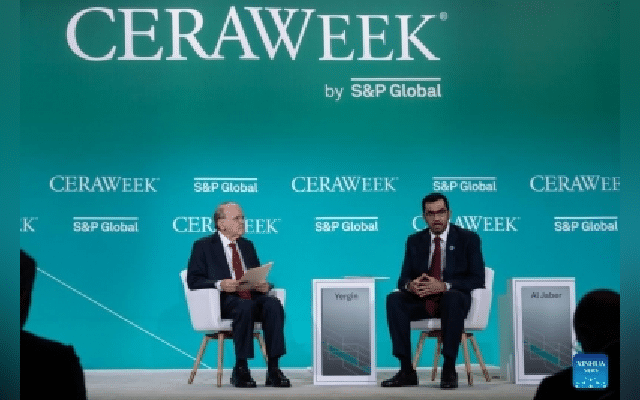Houston: Voices from the Global South are an integral part of the ongoing global energy forum CERAWeek, as speakers from the developing economies gather together with other world industry leaders.
Their opinions have added timely importance as the world is facing harsher twin challenges of energy security and transition amid turbulence, observers say, Xinhua news agency reported.
The five-day event kicked off on Monday under the theme, “Navigating a Turbulent World: Energy, Climate and Security”.
More than 7,000 participants, including policymakers, industry leaders, company executives, investors and researchers from over 80 countries and regions, joined the forum, according to the organiser.
“It is necessary to ascertain how dependent finance can be made more reachable to the countries that need them,” said Malaysia’s Tengku Muhammad Taufik, president and group chief executive officer at Malaysia’s state-owned energy firm Petronas.
Taufik said that small and medium-sized enterprises have to deal with harsh realities resulting from climate change, such as frequent flooding and record-high temperatures recently experienced in parts of Asia.
“We are not climate deniers. I want to put this on record. Eight out of 10 countries in ASEAN have got very ambitious nationally determined contributions targets,” Taufik said, adding that the big challenge is to “put these aims in order and match them with real pragmatic actions”.
The Russia-Ukraine conflict and the 2022 energy market volatility have added a “big catalyst to invest in renewable energy from the energy security point of view”, rather than just “investing in renewables because of the sustainability”, Liza Mustapha, executive vice president and group chief financial officer of Petronas, said in a separate panel.
She said the company attaches great importance to addressing the energy trilemma of energy security, affordability and sustainability.
There is a need for a “balanced view” on the energy transition in the developing economies since they “have people to feed”, said Bharrat Jagdeo, vice president of Guyana, during the CERAWeek.
Even with 10 FPSOs (floating production storage and off-loading) operating offshore in Guyana, “we will be carbon negative”, he told the audience.
“The world is hoping to get to carbon negative in 2050, but we are already there. Our forest area is bigger than England and Scotland combined,” as a huge carbon sink, he said.
“We have a balanced strategy to develop our oil and gas industry, but we also have strong environmental credentials,” he said, “People in Guyana have a legitimate aspiration to a better life.”
Jagdeo said international investors are welcome to buy carbon credits in Guyana to back up the protection of Guyana’s Amazonian rainforests.




